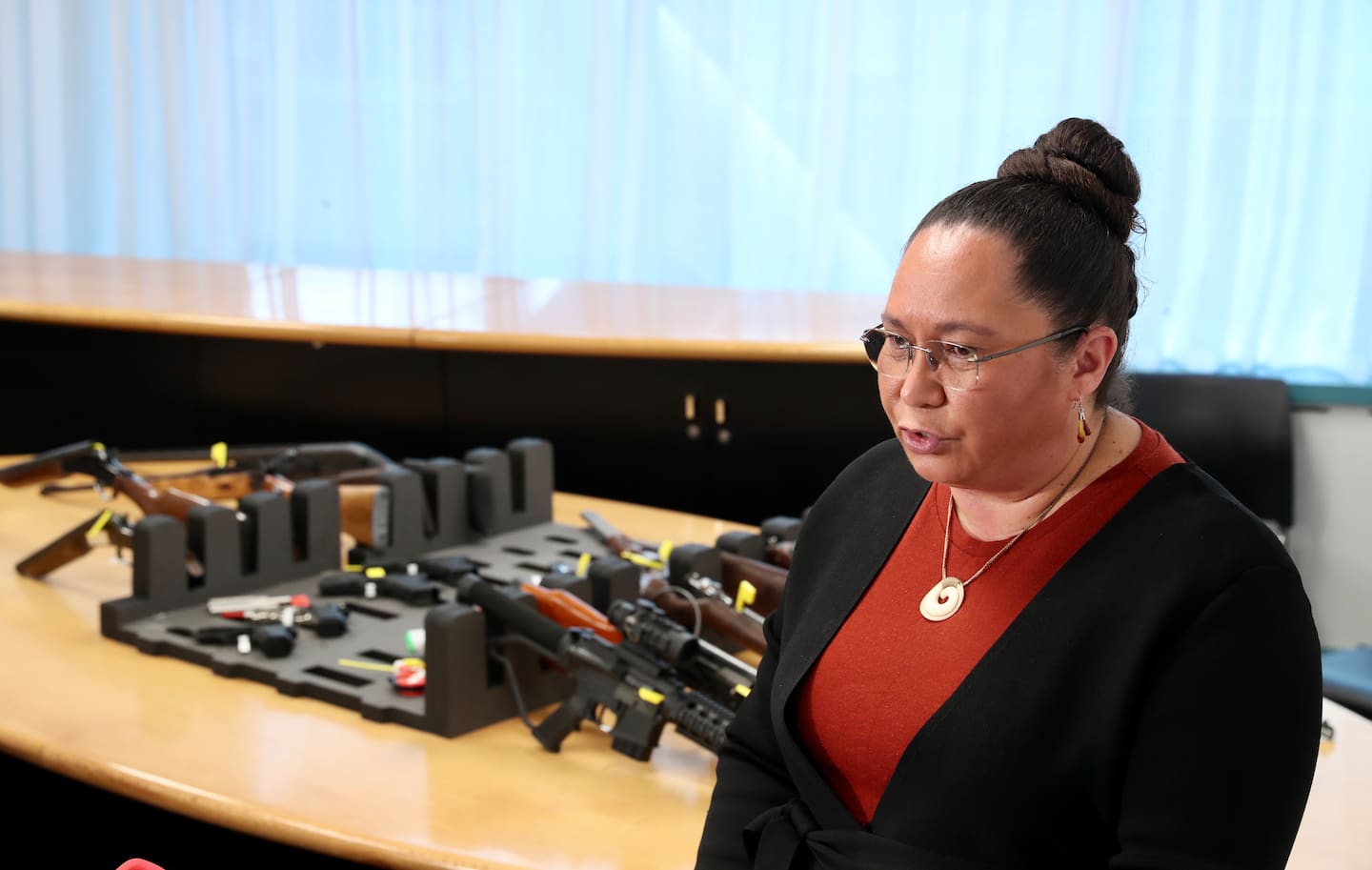The Government’s moves to crack down on gang associates and their firearms would potentially capture innocent people and give police too much power for warrantless searches, according to the Justice Select Committee.
It has recommended several changes to soften the Firearms Prohibition Orders Legislation Amendment Bill, restricting what can be the subject of a warrantless search. All the rooms in a hotel owned by someone suspected of being under a Firearms Prohibition Order (FPO) would be a step too far, for example.
The committee has also narrowed the type of people that an FPO could be applied to so anyone with a link to an associate of a gang – such as counsellors or religious leaders – aren’t potentially captured.
The bill is part of the Goverment’s crackdown on gangs, which Prime Minister Christopher Luxon has not resiled from, despite accepting the state’s responsibility for those who were abused in state care – which for many was a pathway into gang life.
Someone who is the subject of an FPO – ordered by a court – cannot hold a firearms licence, use firearms or related items, or associate with anyone with a firearm (under standard conditions). This would ban them from living in or visiting a house with firearms inside. Breaching an order is punishable by up to five years’ jail.
FPO orders are already possible under legislation from the previous Government, but the current bill would give police new warrantless search powers and allow FPOs to be applied to far more people, and for lower-level offences.
The search powers in the original bill would have allowed police without a warrant to search a person they suspect of being under an FPO. They would also be able to search anything they own or have control over (including a vehicle or property), and any vehicle or venue they are in.
Police told the committee there is always a degree of uncertainty involved, meaning some people could be searched who aren’t under an FPO, so the committee strengthened the threshold: police have to reasonably “believe” an FPO is at play, rather than simply “suspect” that is the case.
The committee also wanted any warrantless search to be limited to monitoring compliance with FPO conditions. This would ensure the search power wasn’t misused to check for any offending, without cause to believe conditions were being breached.
Police would also have the ability to search property that the person occupied or controlled but not owned. “A search of an entire hotel because an individual with an FPO was in the bar is unlikely to be considered reasonable,” the committee said in its report.

Associate Minister of Justice (Firearms) Nicole McKee has announced new measures that will enable police to crack down on gangs through Firearms Prohibition Orders. Photo / Mark Mitchell
Labour members of the committee opposed the bill, saying the new warrantless search powers were still too broad “and could be exercised without cause to suspect that a person was breaching the conditions of their FPO”.
“The legislation would also mean that someone who is in the company of a person who has an FPO could have their home or vehicle searched, even if they had no knowledge the person they are with has an FPO,” Labour members of the committee said.
“We consider there is potential to misuse this broad new search power and therefore cannot support this bill as it does not clearly define the limits and guidelines for conducting these searches.”
Avoiding capturing innocent people
The original bill would make FPOs applicable to people who weren’t necessarily a risk to public safety, including those with links to someone associated with a gang (such as a gang member’s relatives, colleagues, counsellors, or religious leaders), the committee said.
It recommended making FPOs applicable only to those in a gang or associated with a gang.
The new offences that could trigger an FPO were also too broad, capturing convictions that the committee said were potentially unconnected to “firearms, organised crime, or violent offending”, or not connected to any risk to public safety.
The original bill wanted any offence under the Crimes Act punishable by a year in jail to qualify someone for an FPO. The committee instead recommended particular offences such as crimes against the person (such as kidnapping or assault), and crimes against property (such as theft or burglary).
The bill will now be returned to the House, and is expected to pass into law later this year with support from the governing coalition parties.
It follows the Government’s anti-gang laws, which the committee has also recommended softening because of the likelihood of being applicable in situations that were not a threat to public safety.
Take your Radio, Podcasts and Music with you









